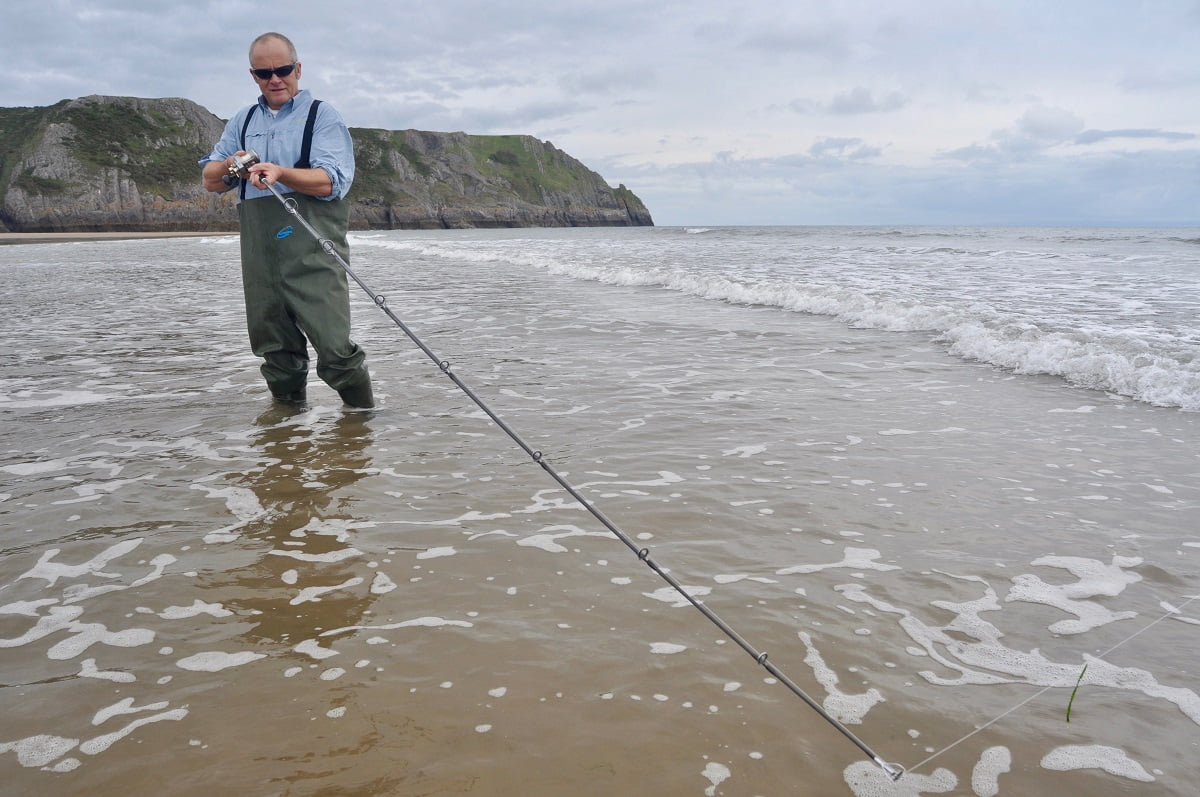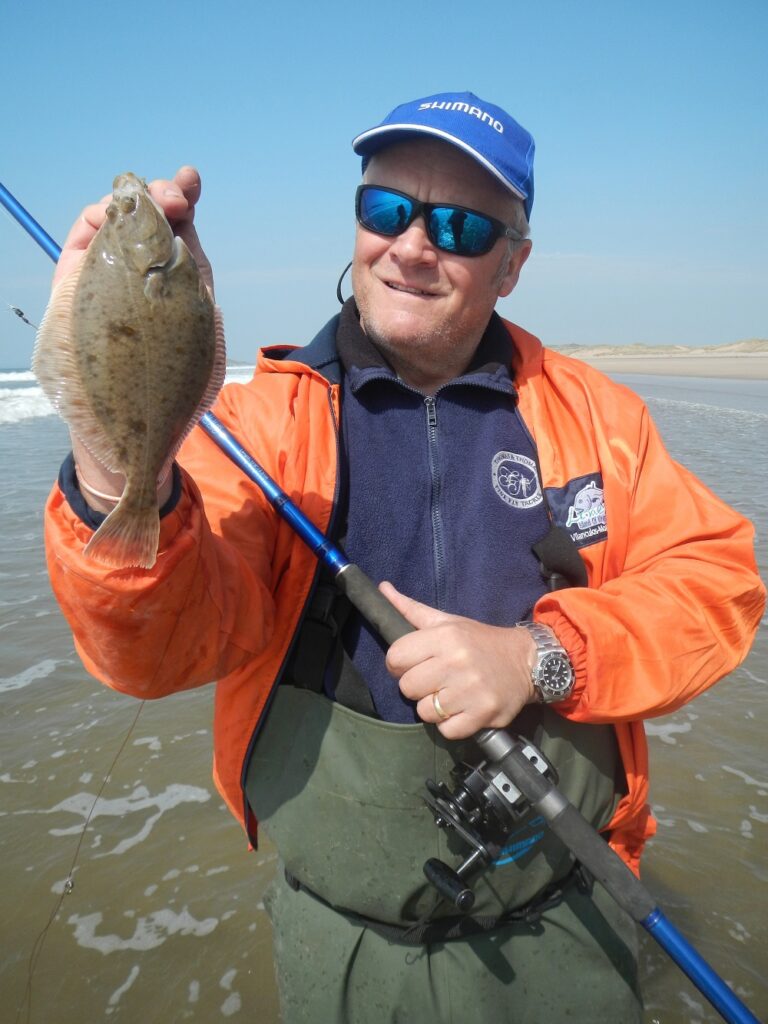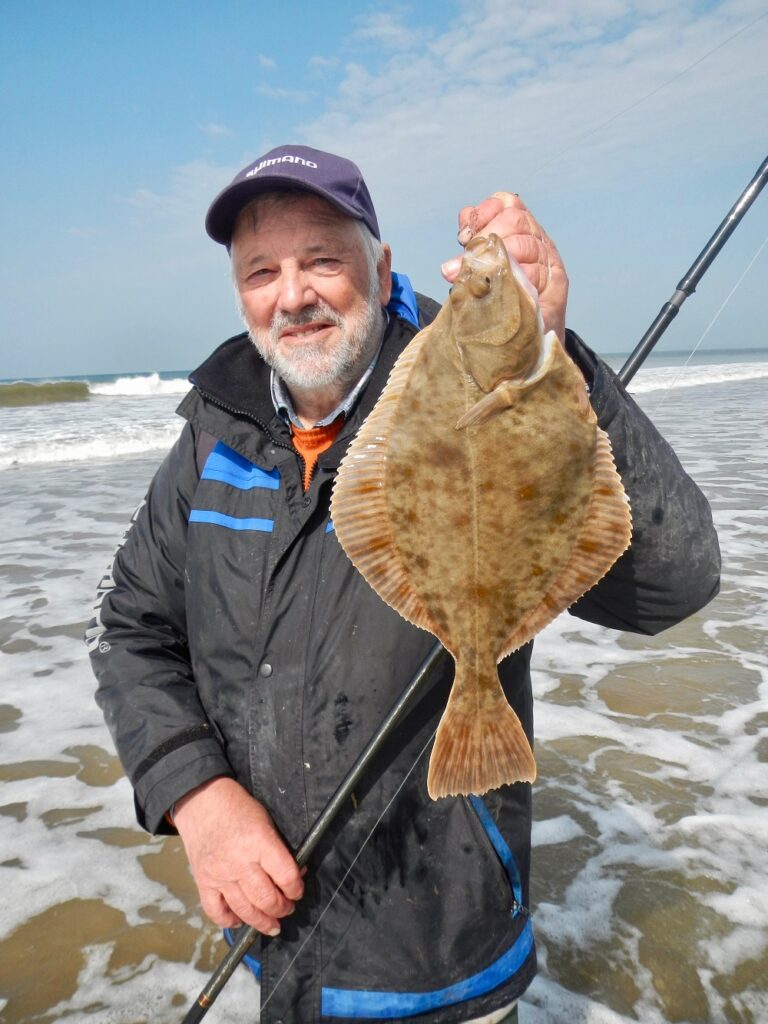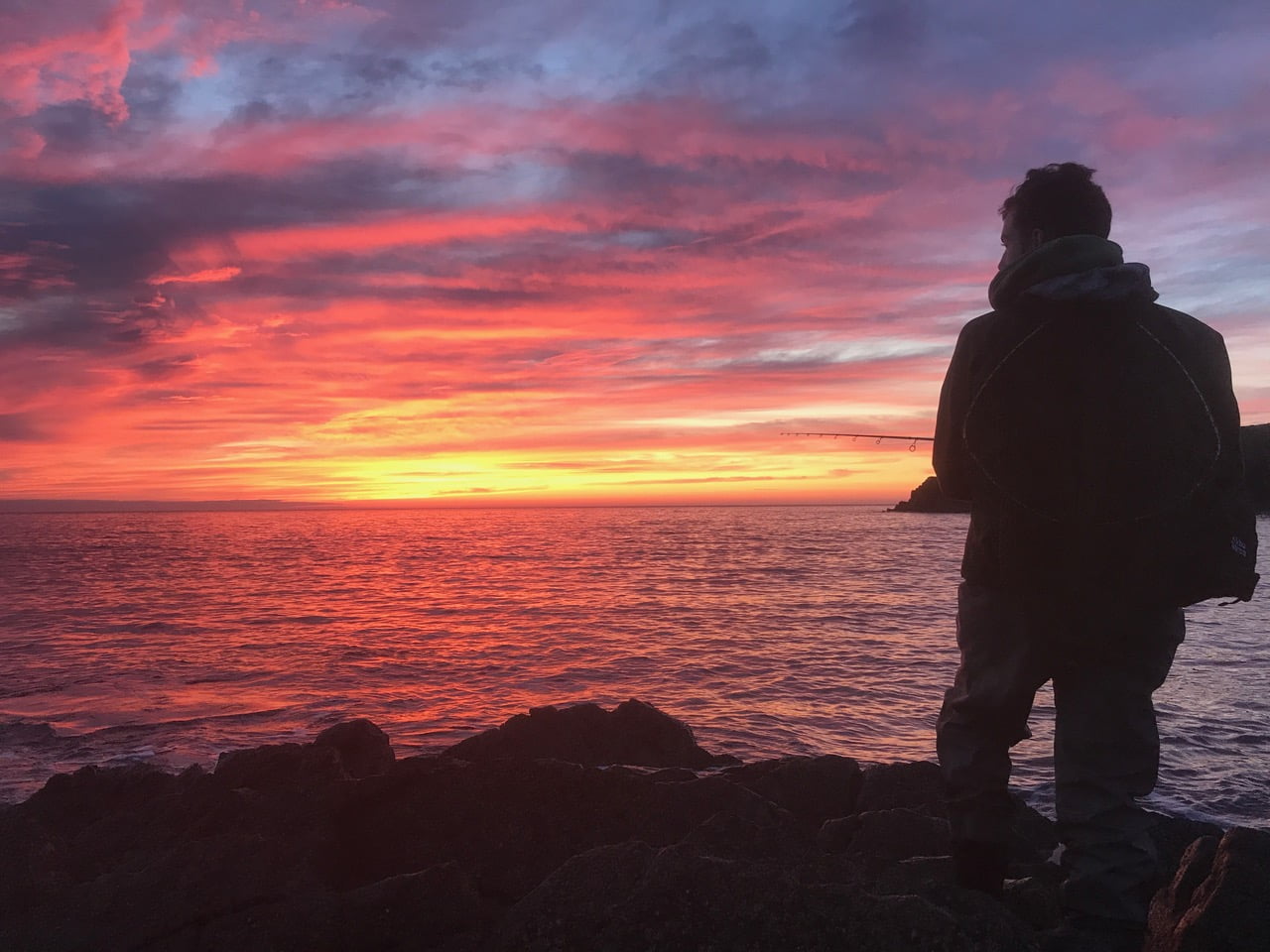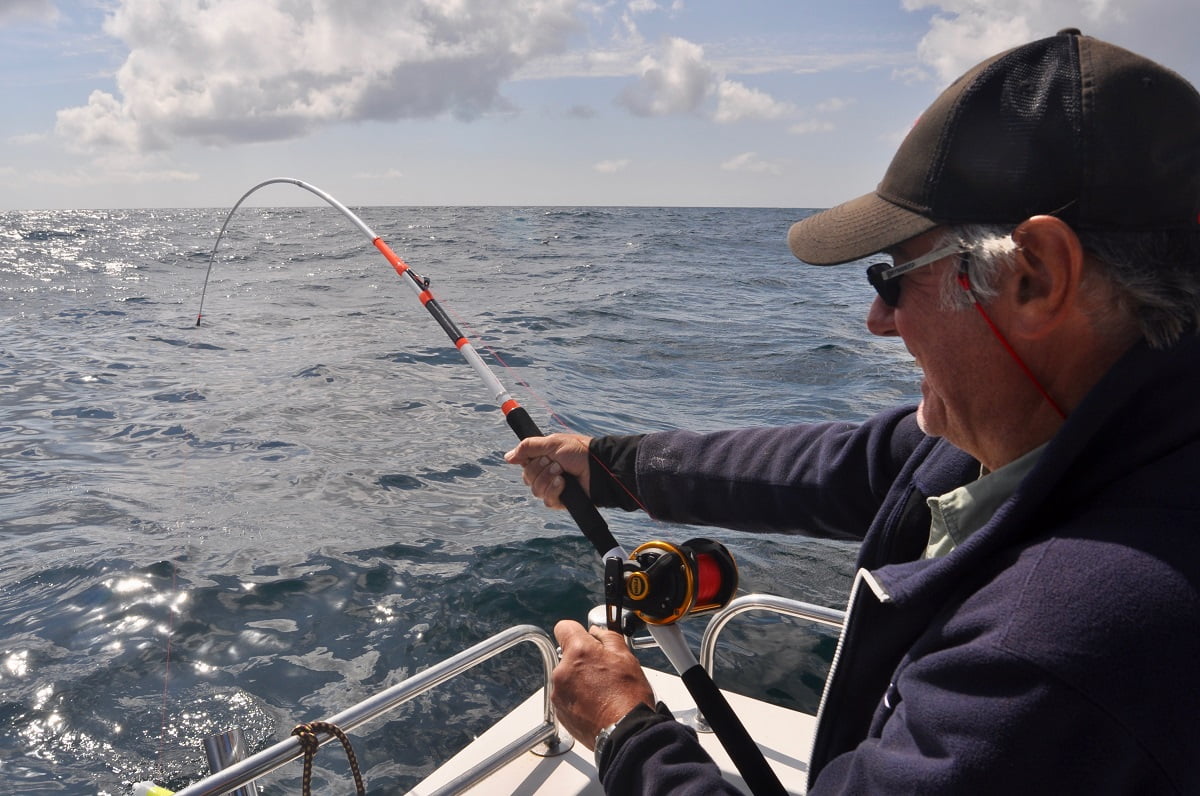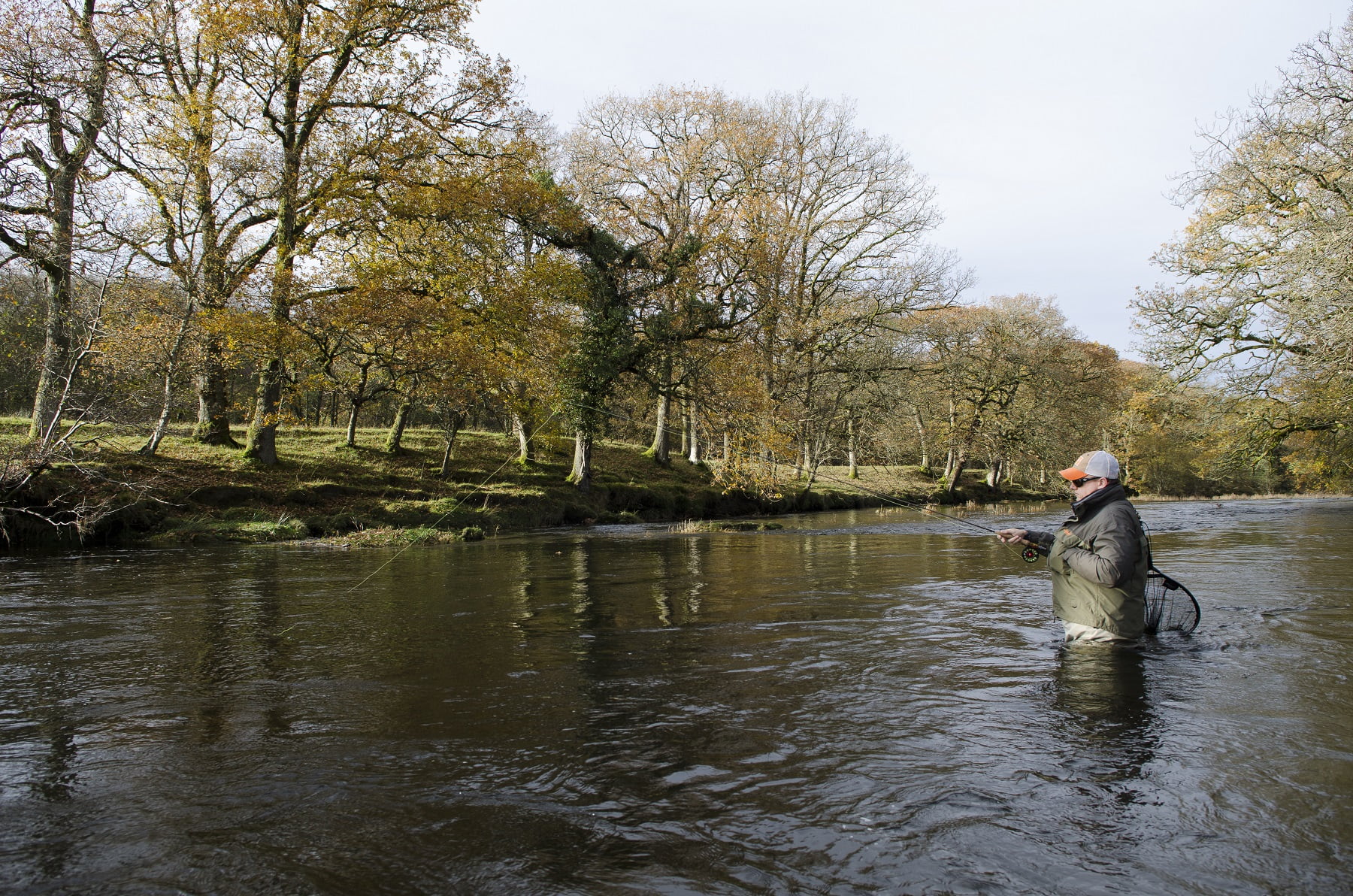Welsh surf beach fishing
Dave Lewis reports on why surf fishing in Wales can be some of the most exhilarating and pleasurable sport an angler can pursue.
Standing knee deep amidst the surging swash of a lively surf on the golden sands of a remote and spectacularly beautiful beach; one of sea anglings most pleasurable experiences. I have been passionate about surf fishing for many years, having been introduced during memorable childhood summer holidays on the Gower Peninsula during which we would spend endless hours fishing at Llangennith for bass and flounder.
Even after all of these years whenever I get the urge to go and fish purely for pleasure, to fish in order to get away from life’s hustle and bustle and empty my mind of the reams of confused clutter that rapidly build up, invariably it’s to Llangennith or one of the many other Welsh surf beaches that I’ll drive to.
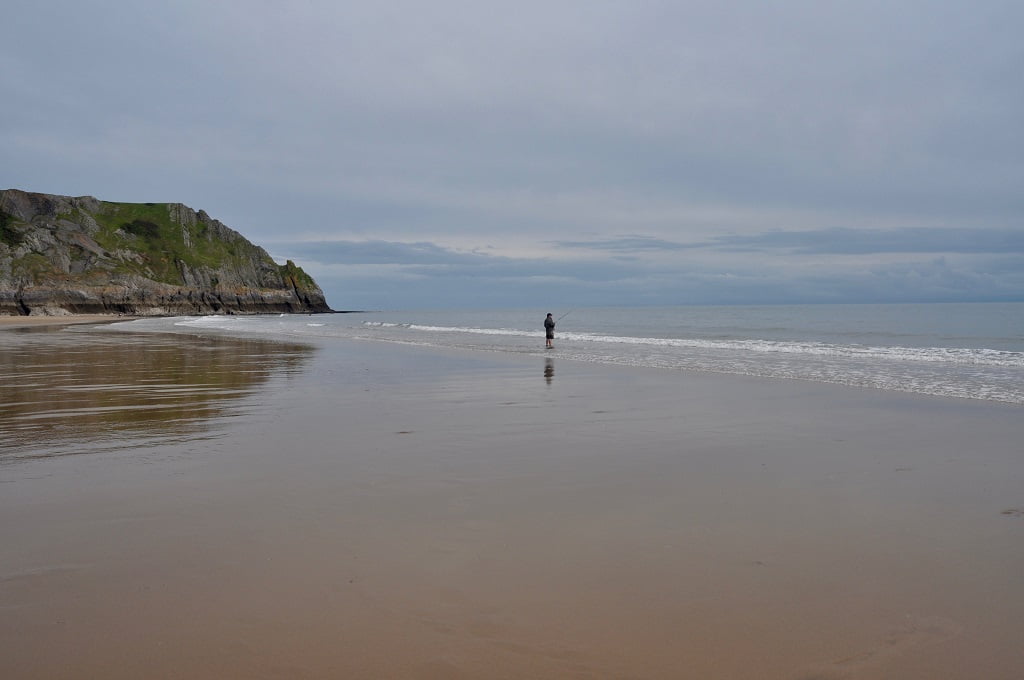
Wales is blessed with some of the finest true surf beaches you’ll find anywhere in the British Isles, south and west facing strands that are fully exposed to the open Atlantic. Many assume that in order to create a lively, fishable surf strong onshore winds are required, but they are wrong. Yes an onshore wind will create waves, but invariably these will be messy and confused, creating little more than a band of thickly coloured water around the surf line and holding piles of flotsam and weed against the beach. You will probably catch a few fish, but not nearly so many as when conditions are ideal.
Ideal surf conditions are created a long way offshore, invariably the result of a deep depression situated many thousands of miles away out in the deep Atlantic. As the resulting low pressure systems migrate towards our coast they push a band of swell in front of them, and it is the arrival of these first rolling swells that surf anglers so eagerly anticipate. As the swells enter ever shallower water they start to turn over, the undertow so formed purging the sands beneath of the plethora of shellfish, worms and other rich food sources that ultimately will attract fish inshore to feed. Absolute perfect conditions consist of three or four swells separated by tables of flat, smooth water.
Obviously when the storm is at its peak fishing is all but impossible. However as the front moves on and conditions start to subside, once again the beach will become fishable. Indeed it is now that you can experience some of the very best fishing of all as even more fish move in to clean up nature’s bountiful table.
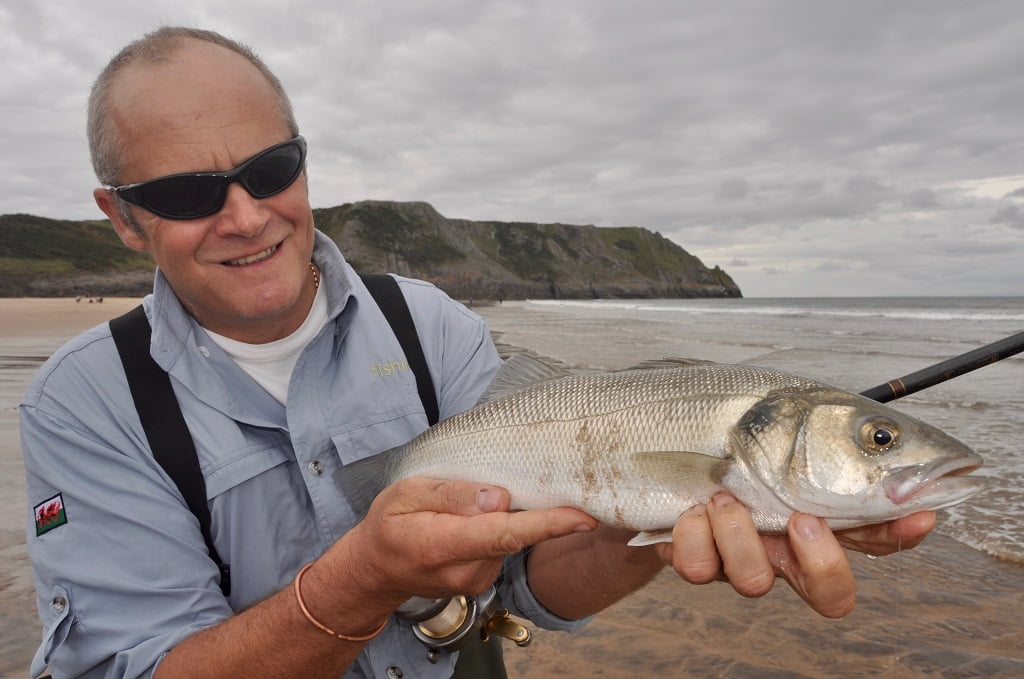
Bass, of course, are the species most anglers automatically associate with surf fishing, and certainly from my experience the bass fishing you can experience on Welsh surf beaches is at the very least the equal of that you’ll find anywhere else. The autumn months when our inshore sea temperatures are at their warmest are absolutely prime time to fish the surf, especially for bass, but increasingly many other species are attracting anglers to fish the beach.
Next to bass flounder are probably the most targeted species, and again autumn is an excellent time to catch these lively flatfish.
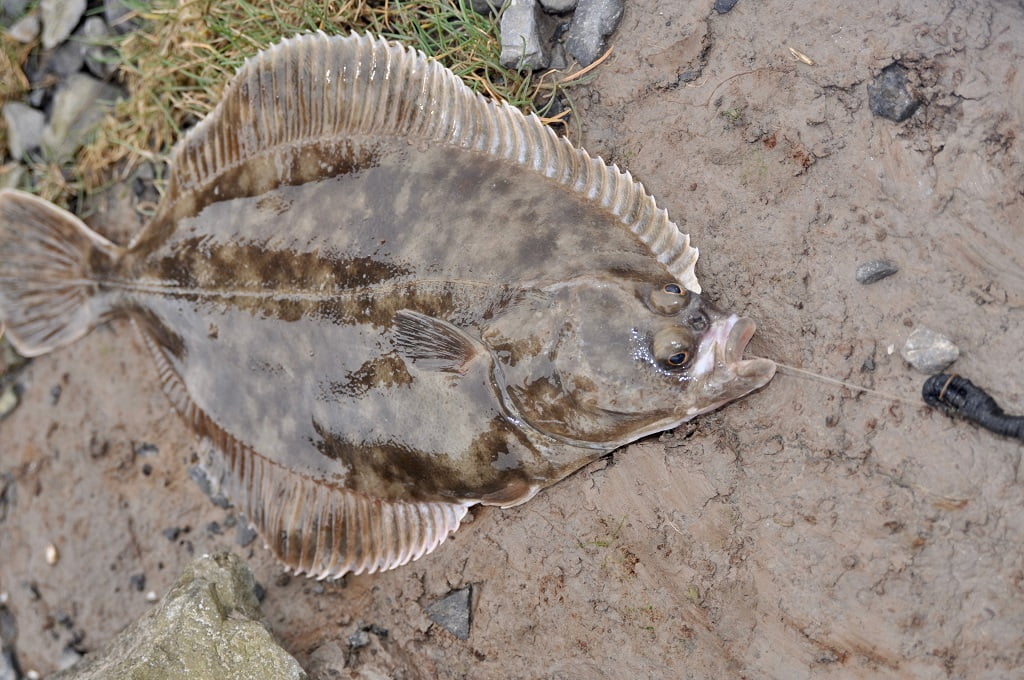
During the autumn they feed heavily to pile on weight prior to the rigors of spawning in the New Year. Caught on light and sporting tackle flounder are tremendous fun to catch. A little more than a decade ago golden grey mullet were barely known let alone fished for, yet today you’ll find many anglers fishing almost exclusively for ‘goldies’.
While golden grey mullet first appear in early summer, fishing for them during the peak summer months can be difficult due to the numbers of holiday makers on the most popular beaches. Of course you can always find a quiet spot away from the crowds, and fishing at first and last light is almost always productive. Personally, however, I tend to wait until autumn when even the most popular beaches are all but deserted.
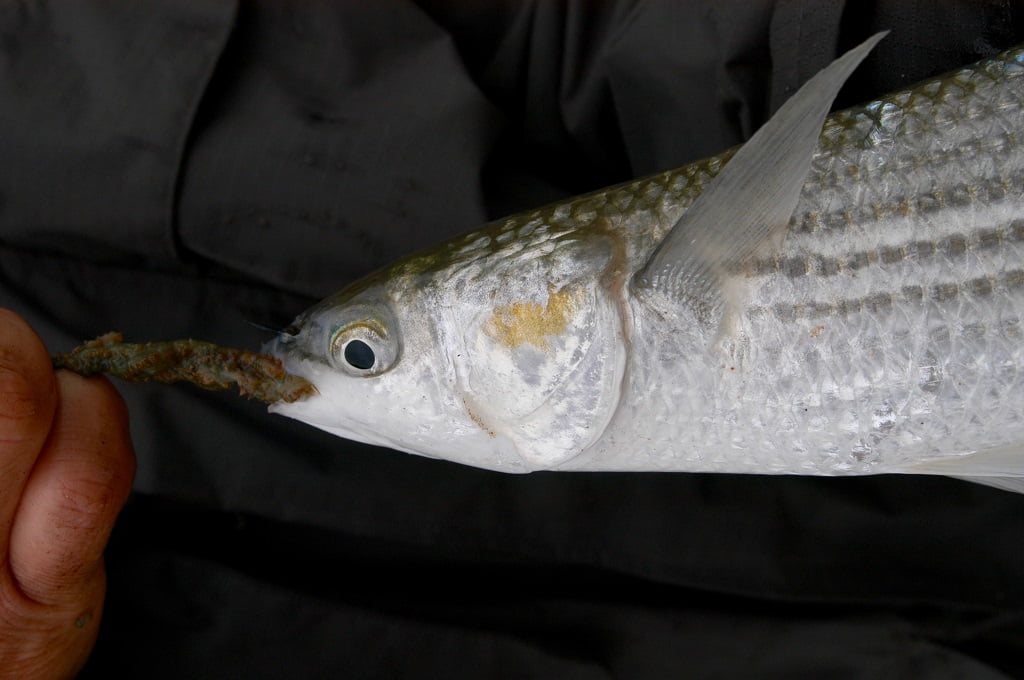
I’ve caught plenty of goldies from September right through until November, and suspect they can be caught even a few weeks later if conditions remain mild. Certainly autumn is the absolute prime time to fish for bass, flounder and mullet in the surf.
Surf fishing tackle
One of the big advantages with surf fishing is that typically you will be using what by typical sea angling standards will be light tackle. Ideally this will mean something along the lines of an 11 13ft rod suitable for casting 1-4oz. For freshwater anglers keen to sample the excitement of sea angling a carp, pike or barbel rod will not only be up to the task but perfect.
Choice of reel is entirely down to the individual. Personally I like using the small multipliers I first used off Gower in the 1970’s, while an increasing number of anglers I see are using 4000 size fixed spool spinning reels to good effect. Likewise it’s entirely down to the individual whether you use monofilament or braid, again speaking entirely from a personal perspective I use monofilament of between 12-18bbs.
My choice of rig for general fishing on surf beaches could not be easier; a simple two or three hook paternoster. If flounder and/or golden grey mullet are my target species then I’ll keep the hook sizes small, usually between size 2 or 4 though occasionally down to size 6 Aberdeen’s.
If I feel conditions are right for bass I’ll usually revert to a single hook paternoster with a larger size 1/0 up to 3/0 hook. All my surf rigs are tied with an absolute minimum of components with the hook snoods, 12-18in in length, cut from clear 151b monofilament.
Usually I fish within 60 yards from the surf line, often much closer, so I do not need to incorporate bait clips or any of the other injection moulded paraphernalia seen on many anglers’ rigs today. I use the lightest lead possible, which usually means a plain bomb of between 2-4oz, though I do carry a few grip leads for use whenever the surge of the surf is really lively.
Bait for Surf Fishing
My choice of bait on most surf trips these days is another done deal: maddies. From my experience there is no finer bait for flounder or golden grey mullet and maddies, aka harbour rag, or mudworm will also catch you plenty of bass. That said, if it is just bass I am targeting then either fresh lugworm-blow or black, razorfish, clams or frozen sandeel are my bait of choice.
The golden rule when surf fishing is to hold your rod. In my book the only
valid purpose of having a rod rest is to use it to hold your rod while tackling or baiting up. Sit your rod in a rest and watch the tip for bites, and I guarantee you will miss more than you hook. For If you’re fishing from a boat or from me a big part of the excitement of surf exposed or rocky shoreline, fishing is in feeling the bite.
Always remember: safety first!
- Tell somebody where you are going and what time you expect to be back.
- If you are fishing from a boat or exposed shoreline wear a life jacket.
- Carry a mobile phone to call for help.
- Check the weather and tides before travelling
Fancy a go?
Fancy trying surf fishing but don’t know where to start? Your local tackle shop is a good place to get some great information and they are usually happy to get you started. Also see our beginners guide to shore fishing.
The Wales Coast Path alone covers some 870 miles of the Welsh Coastline. With such a vast amount of water to cover where best to start? Well, your first port of call should certainly be our website where notable sea fishing marks can be found.
Words & Images: Dave Lewis
This feature was originally published in the ‘Wild Fishing Wales E-Zine’. Reproduced with permission of NRW.
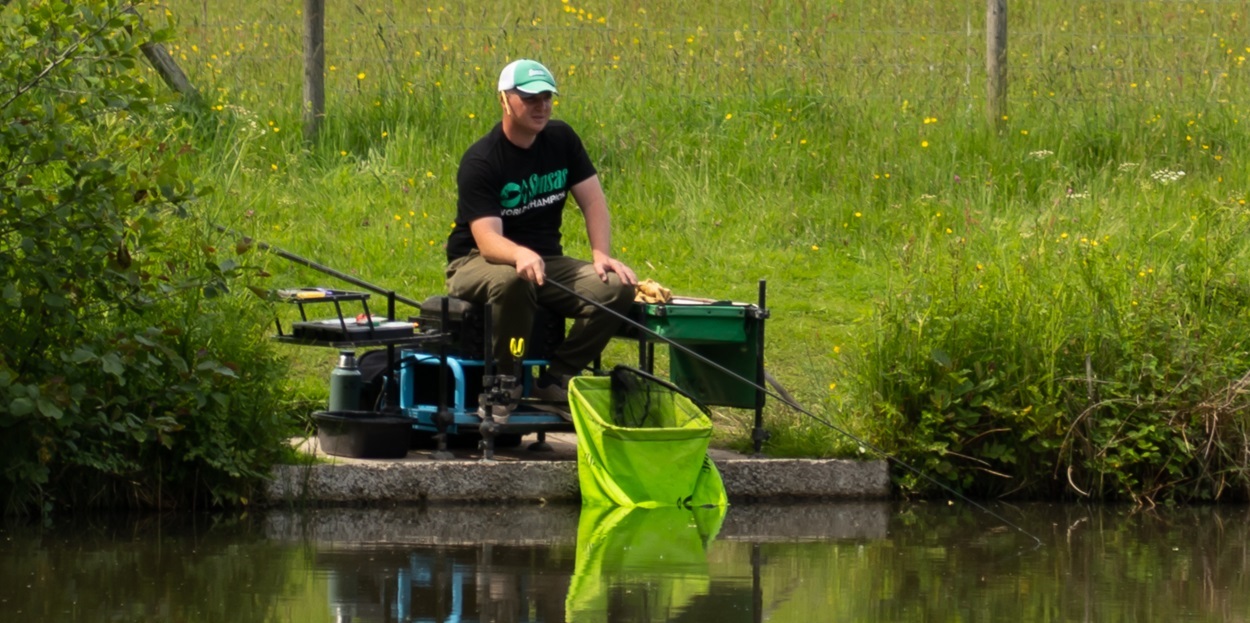
Cast a line and get back to your happy place
As we near National Fishing Month in August, Natural Resources Wales (NRW) invites everyone to experience the joy and…
Read More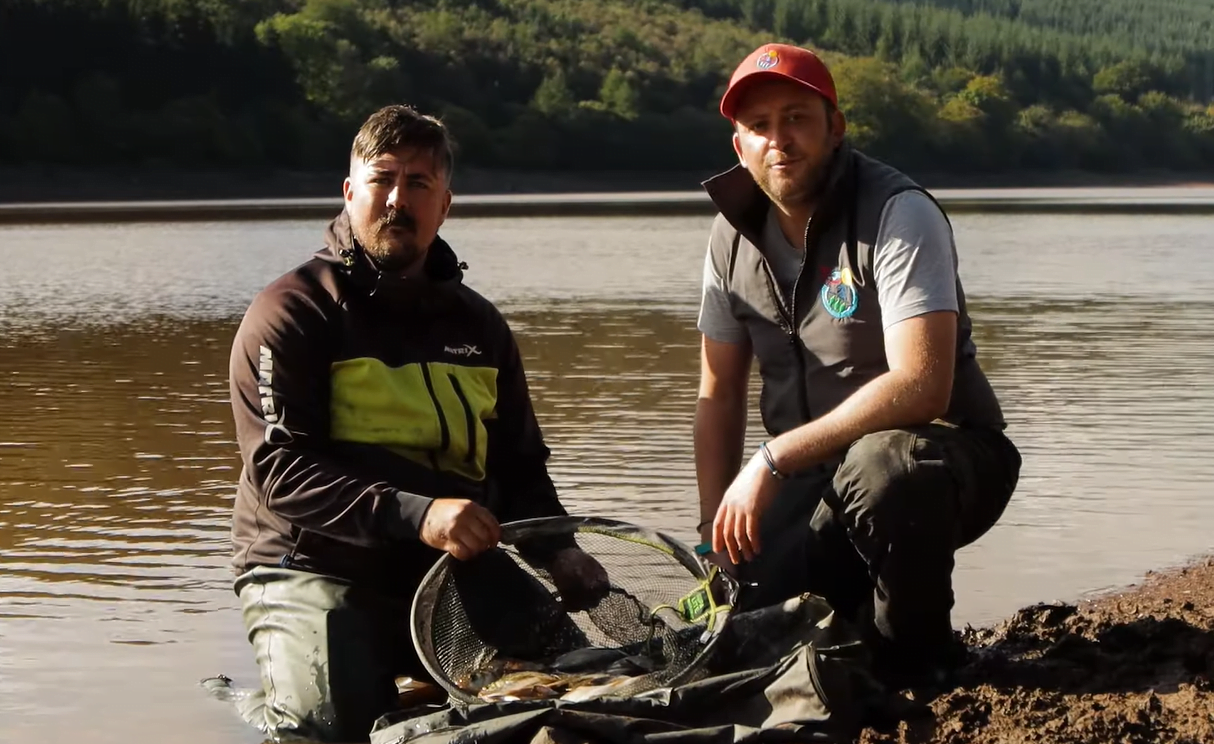
Take A Friend Fishing is Back
‘Take a Friend Fishing’ is on from 27th July to 1st September 2024 for National Fishing Month! Get together with…
Read More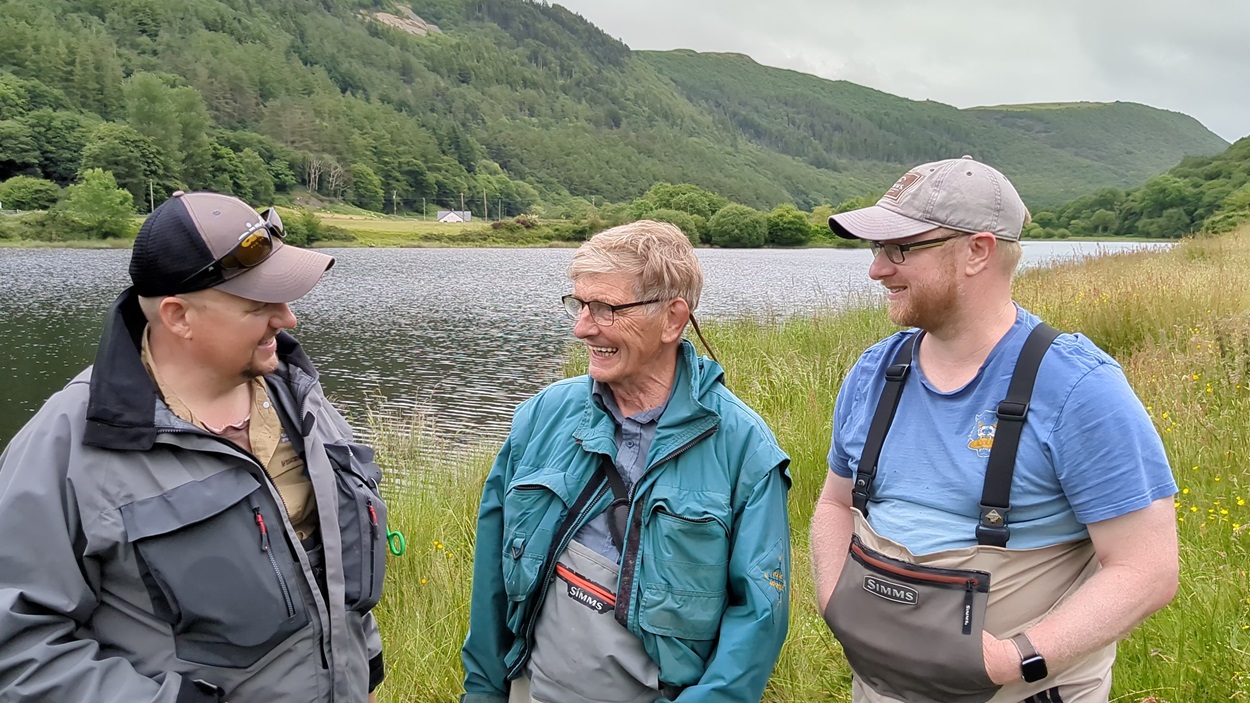
10 Lake Challenge VIDEO - Aberystwyth Angling Association
In this ‘summer special’ video Alan ‘Parf’ Parfitt, Ceri Thomas and Mark Evans take on the ’10 Lake Challenge’ which…
Read More
